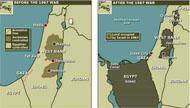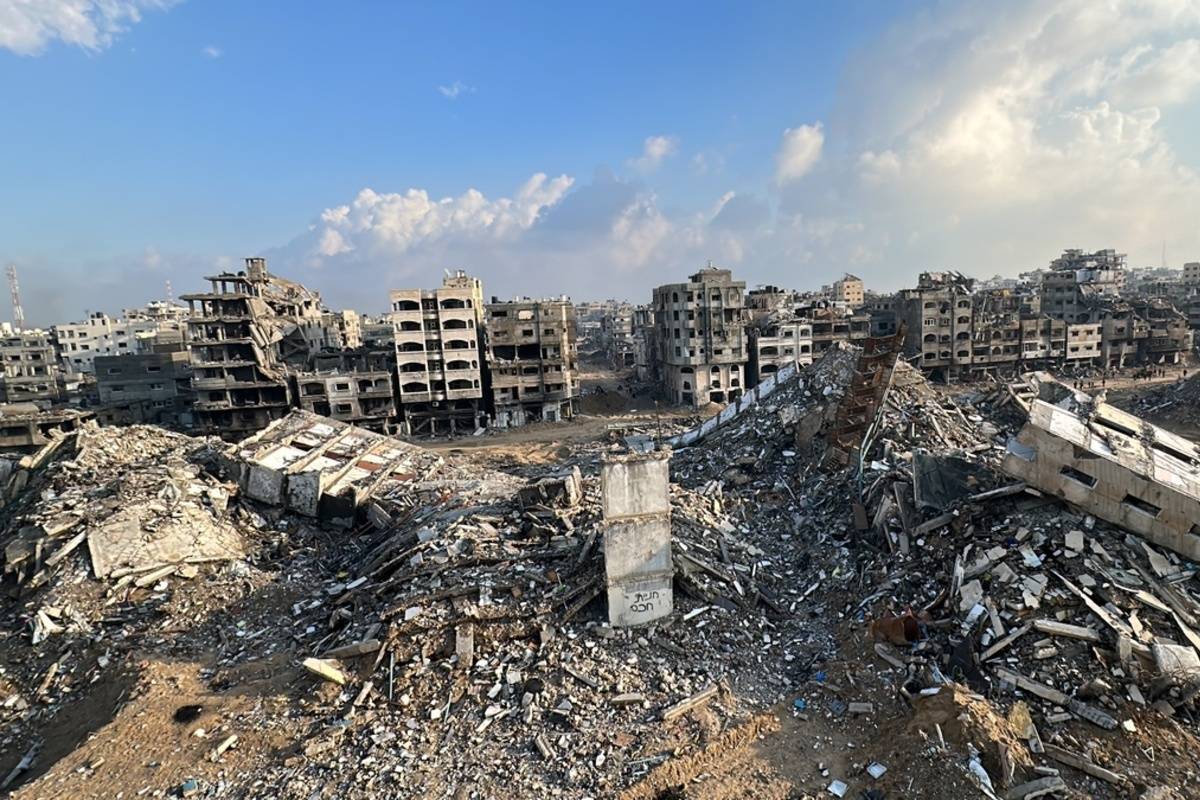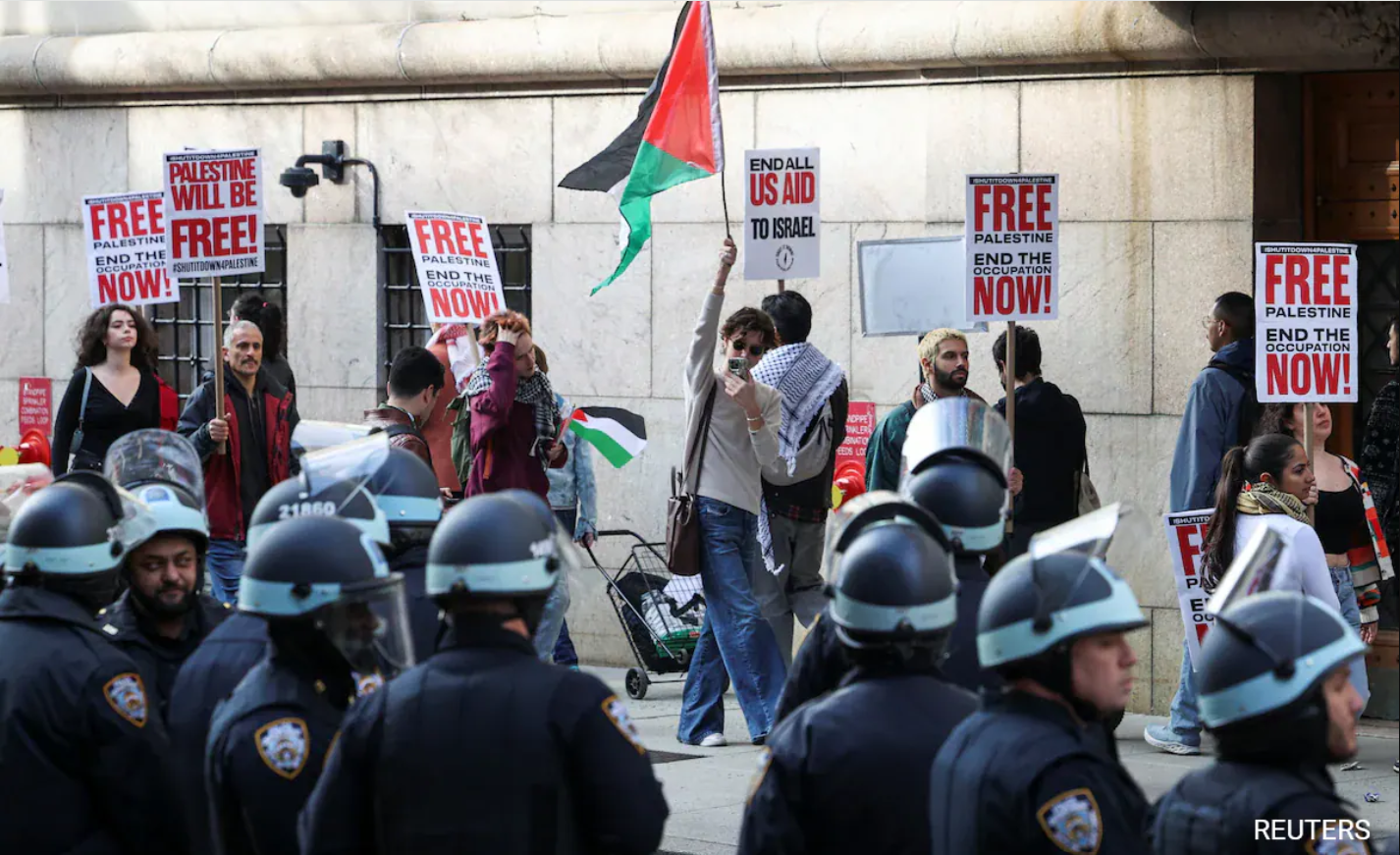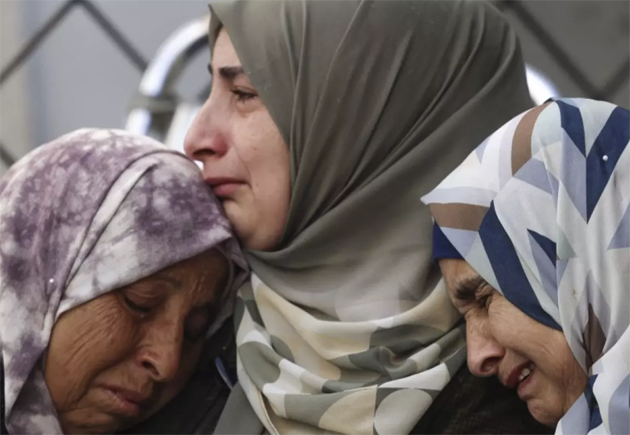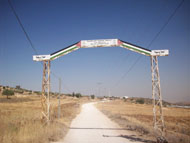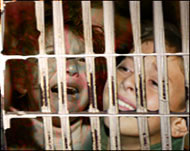On June 5th Palestine will commemorate the 41st anniversary of the June 1967 War. The war of 1967 is often referred to as al Naksa by the Egyptians, which literally translates to “the setback” (not to be confused with the Nakba “catastrophe” which was observed in May). Al Naksa refers to the further displacement of Palestinians from the West Bank, eastern Jerusalem and Gaza during the 1967 War, as well as marking the start of Israel’s illegal occupation of these territories. Akin to the observance of al Nakba, it is also a demand for the respect of basic human rights and rule of law, especially the right of the refugees and the internally displaced to return and repossess their homes, lands and properties.
For those that do not know much about the conflict, a short recap of the events that lead to the war is necessary. From start to finish, the war lasted a total of 132 hours and 30 minutes. In May 1967, Egypt expelled the United Nations Emergency Force from the Sinai Peninsula which had been stationed there to provide a peace-keeping buffer zone. In response, on June 5th 1967, Israel launched a vicious pre-emptive attack against Egypt’s air force and against Syria and Jordan. Israel achieved great victories immediately, due to the surprise nature of the attack. The war was the most dramatic of all wars fought between the Arab Nations and Israel, with Israel gaining control of the Sinai Peninsula, the Gaza Strip, the West Bank, eastern Jerusalem and the Golan Heights. The results of the war affect the geopolitics of the region to this very day.
During the War of 1967, approximately a further 400,000 Palestinians were displaced. As was the case with the 1948 Nakba, most refugees were displaced by the Israeli military forces using tactics violating the basic principles of international humanitarian and human rights law; attacks on civilians, massacres, expulsion and destruction of property. Some 800,000 Palestinians fled the 1948 hostilities to refugee camps in Jordan, Lebanon, Syria, the West Bank and Gaza Strip, and nearly 200,000 of them were forced to flee again in the June 1967 war. This double displacement highlights the extreme suffering of the Palestinians at the hands of Israel. Although Israel were quick to defend their actions, as they so often are, this mass displacement can only be likened to a form of ethnic cleansing; to rid the land of Palestinians, instead of encouraging the two nations to live side by side. This is a recurring theme in Israel’s behavior, and is evidenced not just in history, but also in the present day dealings with Palestinians and foreigners, whether at checkpoints or the airport.
So once again, the landscape of Palestine was altered by this event.
The marking of this occasion is bound to add fuel to the flames of the ongoing fire of the “right to return” for Palestinian refugees. In December 1948, the UN General Assembly passed Resolution 194 as part of the attempt to deal with the complex situation in Palestine as it stood at that time. The “right of return” is enshrined in Article 11 which “resolves that the refugees wishing to return to their homes and live at peace with their neighbors should be permitted to do so at the earliest practicable date”. Although Israel accepted this resolution, there has followed much dispute over the years regarding its interpretation. Many critics, including Israel, say that it cannot be applied practically and to do so would threaten the existence of Israel. The ease with which the Palestinians can be swept under the carpet is astonishing. To this very day, there are Palestinians who live in the hope that one day they will be able to return to the land they call home. Many hope that the displaced people will forget about Palestine, but as one man whose family was forced to flee in 1967 observes, “They say the third generation will forget about Palestine, but we have told our children the stories of Palestine and they will not forget”.
Israel has been called upon by the UN to ensure the safety, welfare and security of the inhabitants where military operations take place; repeated resolutions on Israel to comply with international law have been vetoed by the US more than 50 times. With the exception of Israel occupying the Sinai Peninsula, the conflict remains, for all intents and purposes, at the point it was left in 1967, to this very day.
Most recently, events like the Annapolis conference show that the two sides, Palestine and Israel, remain split over the issues of borders, the status of Jerusalem and the Palestinian refugees’ right of return. These people have been denationalized and dispossessed.
Last year marked, during events to mark the 40th anniversary of the War of 1967, Palestinian President Mahmoud Abbas gave a televised speech in which he said “the establishment of an independent Palestinian state can help to ease the memory of the bitterness of the defeat that the Arabs suffered at the hands on Israel in 1967.” He went on to say that Palestinians are “still paying a high price for a major defeat”. Of course this speech came at a time when there was a lot of internal fighting between Fateh and Hamas, giving Israel an excuse to try and achieve the gains it sought and still seeks. A year on, the best way forward is for Palestinians to unite and for continued pressure to be applied on the international community to end the longest running occupation in the world and to alleviate the suffering of the Palestinians once and for all.




